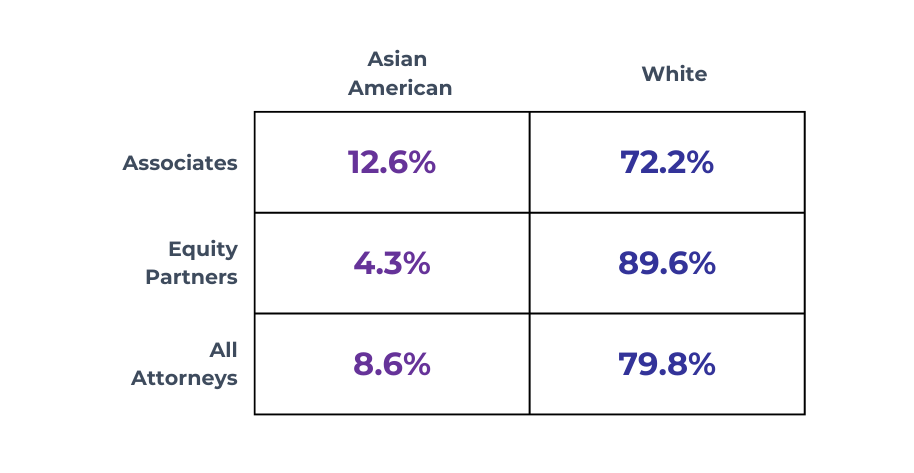| Portrait Project 2.0 |
A Portrait of Asian Americans in the Law 2.0Identity and Action in Challenging Times
In 2017, “A Portrait of Asian Americans in the Law”
provided a groundbreaking, systematic account of how Asian Americans are situated in the legal profession. The report showed that, within the span of a generation, Asian Americans penetrated virtually every sector of the legal profession but were
significantly underrepresented in the leadership of law firms, government, and academia. This initial study provided a descriptive account of the many ways in which Asian American lawyers and law students struggle and thrive, and the unique incentives
and constraints that shape their career paths. Key FindingsAsian American attorneys indicated greater engagement with social and political issues, along with a desire to change and improve society.
2022 survey respondents seeking to change practice settings ranked a desire to advance issues or values important to them among their most significant reasons for doing so. This was ranked among the least significant reasons in 2016. 
Changes in activities since March 2020:
The number of Asian American federal judges has increased over the past five years, comprising 6.0% of active federal judges compared to 3.4% in 2016. In 2020, there were 45 AAPI general counsel of Fortune 1000 companies, up from 19 in 2009. Only one of 93 Senate-confirmed U.S. Attorneys is Asian American, and in 2019, there were only 8 Asian Americans among the nearly 2,400 elected prosecutors—numbers that are disturbingly small given the rise in reported incidents of anti-Asian harassment and violence. Asian Americans continue to be the largest minority group at major law firms, but they continue to have the highest attrition and the lowest ration of partners to associates. Just 4.3% of equity partners at major firms in 2020 were Asian American; almost 90% were white. 
One-third of 2022 survey respondents indicated that they had no mentors in law school. Those who were the first in their family to attend law school were especially likely to report being unaware of the importance of mentorship to their careers. The three most significant obstacles to advancement cited by 2022 survey respondents were the same as those cited by 2016 respondents: lack of formal leadership training programs, inadequate access to mentors, and lack of recognition for
one’s work. More 2022 survey respondents, compared to 2016 survey respondents, reported perceiving overt or implicit discrimination in the workplace because of their race. Survey respondents in 2022 and 2016 consistently reported being stereotyped —
as hard-working, responsible, and logical but also as lacking in interpersonal skills and leadership potential.
Project Updates and ResourcesA Portrait of Asian Americans in the Law 2.0: Identity and Action in Challenging Times (2022) Who’s Going to Law School? Trends in Law School Enrollment Since the Great Recession (2020) A Portrait of Asian Americans in the Law (2017)
Media
Action Items
MENTORSHIP AND SPONSORSHIP
CLERKSHIPS
|
1/23/2026NAPABA Supports the Language Access for All Act of 2026
1/21/2026NAPABA Applauds the Appointment of Justice Sanjay T. Tailor to the Illinois Supreme Court
1/16/2026MNAPABA and NAPABA Statement in Support of AANHPI and Immigrant Communities
1/16/2026NAPABA Applauds the Confirmation of Judge John Truong to the D.C. Superior Court
1/12/2026Coalition of Asian American Advocacy Organizations Secure Removal of ‘China Initiative’ Language
5/19/2026 » 5/20/2026
2026 NAPABA Lobby Day
5/19/2026
Congressional Reception
7/31/2026
NAPABA Meet & Greet | Chicago
11/12/2026 » 11/15/2026
2026 NAPABA Convention